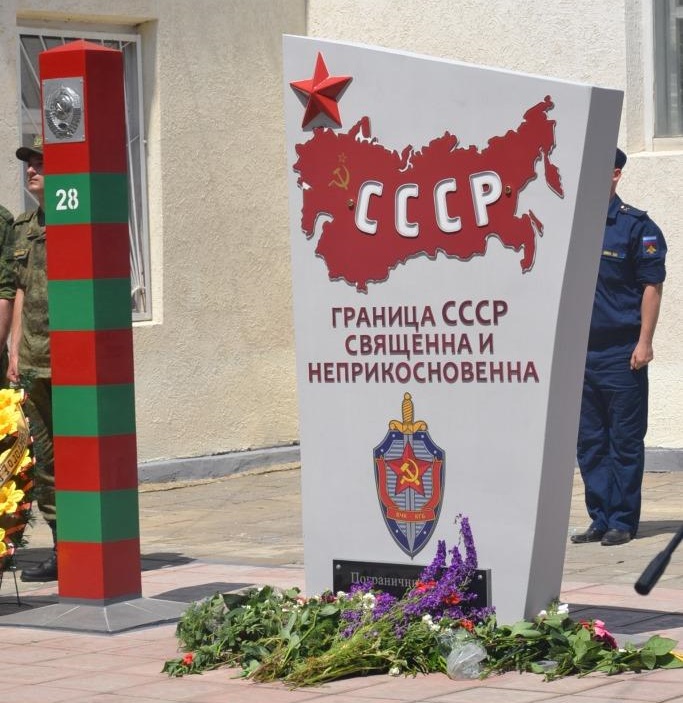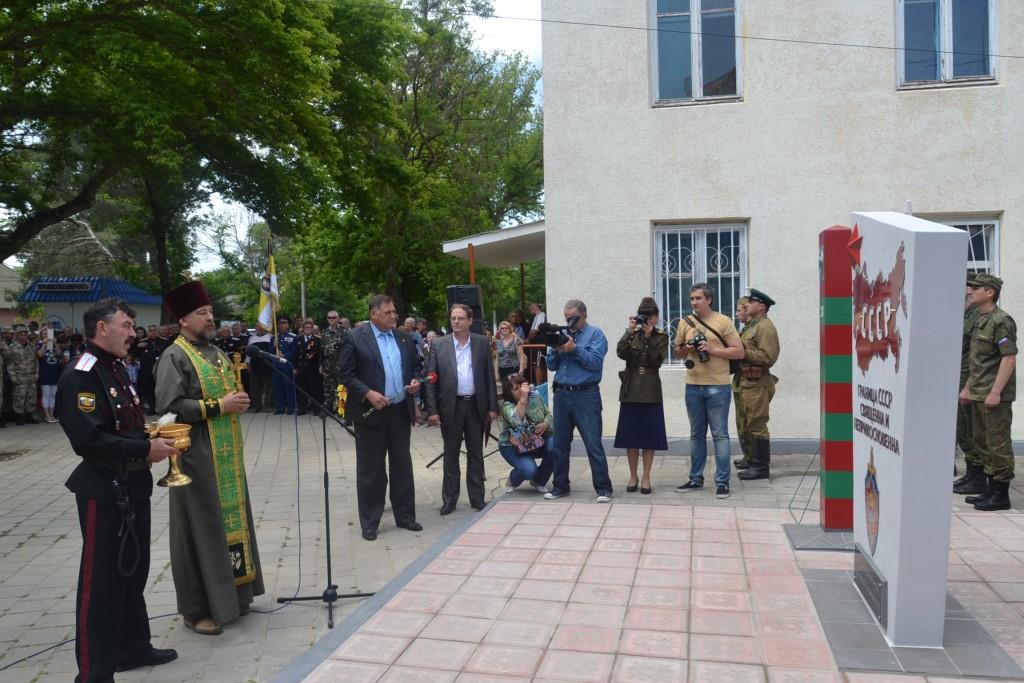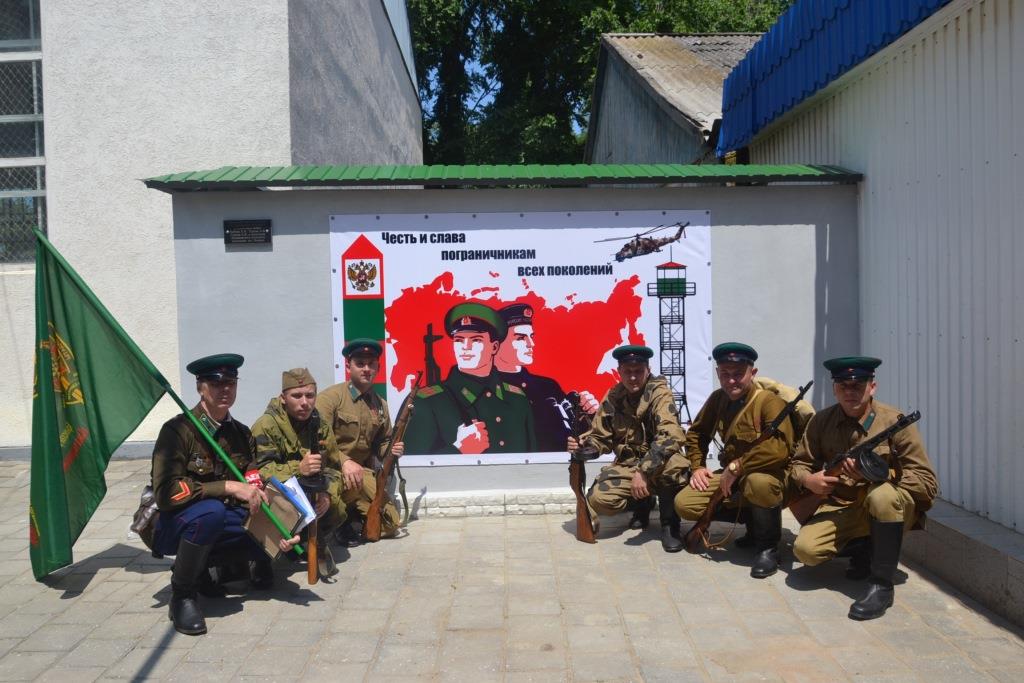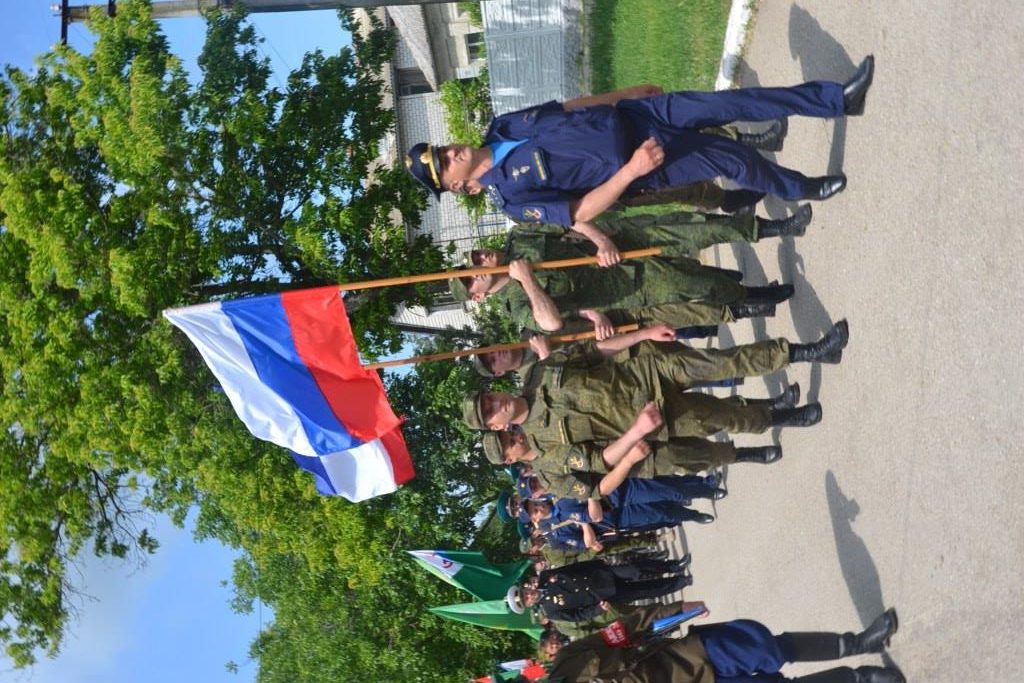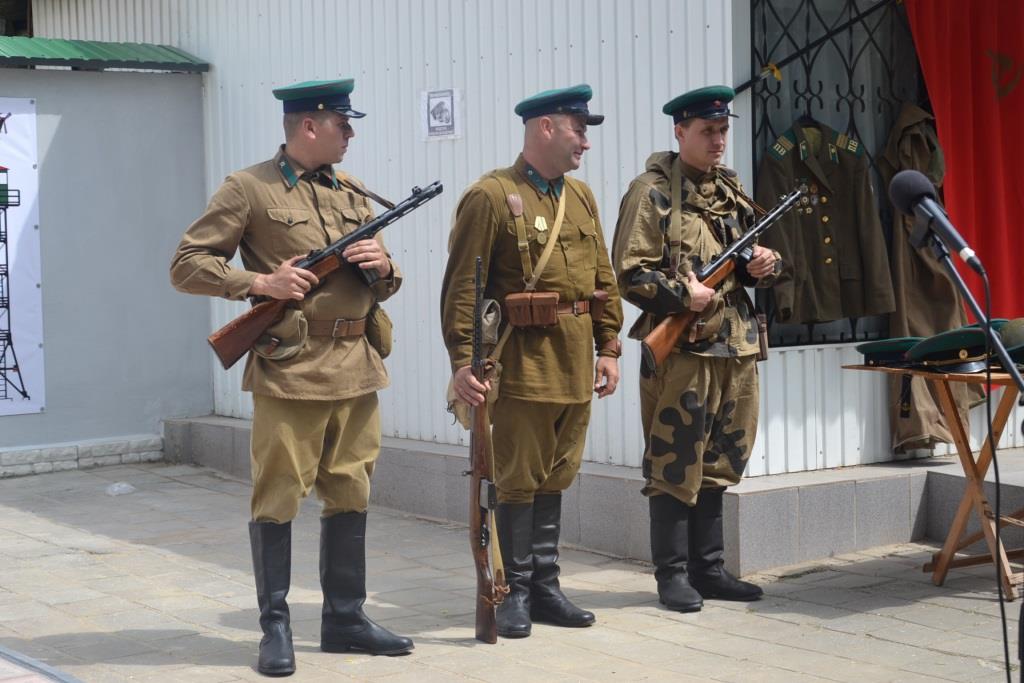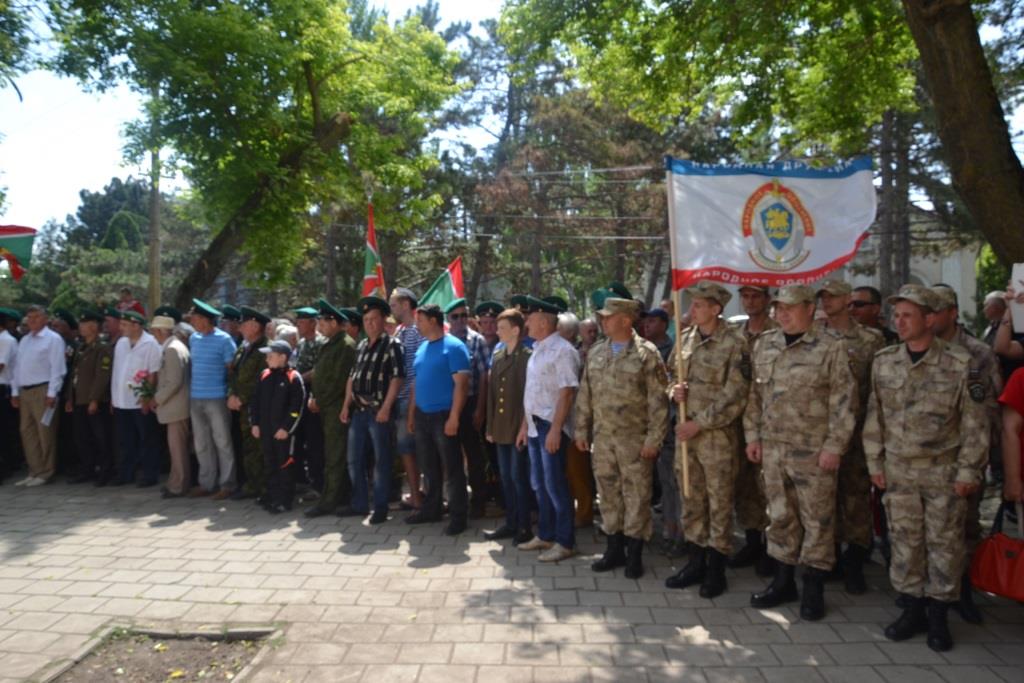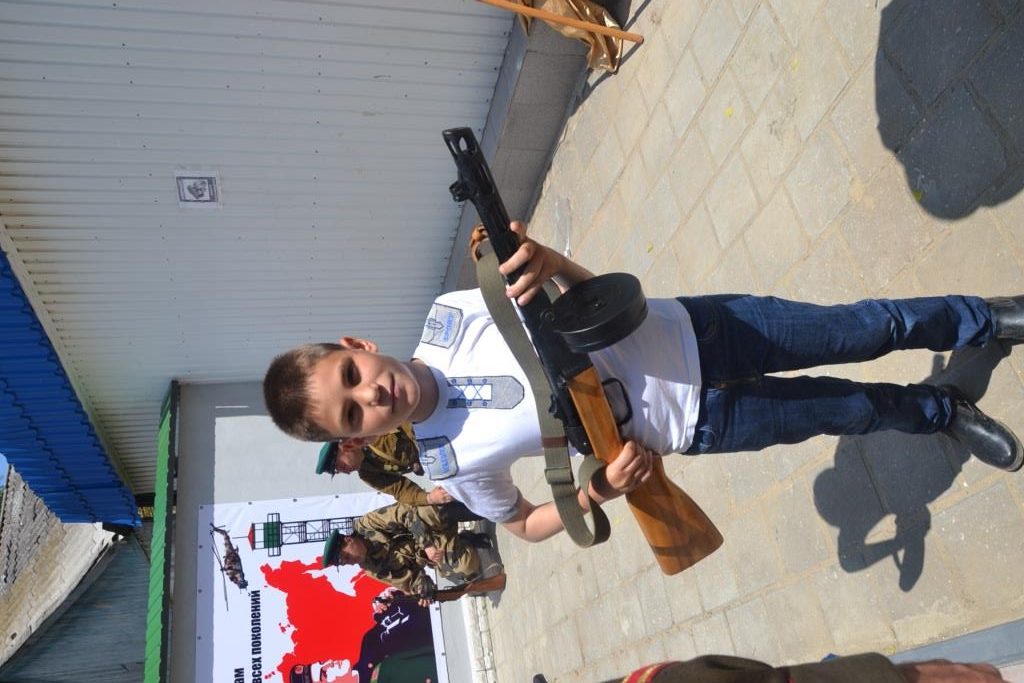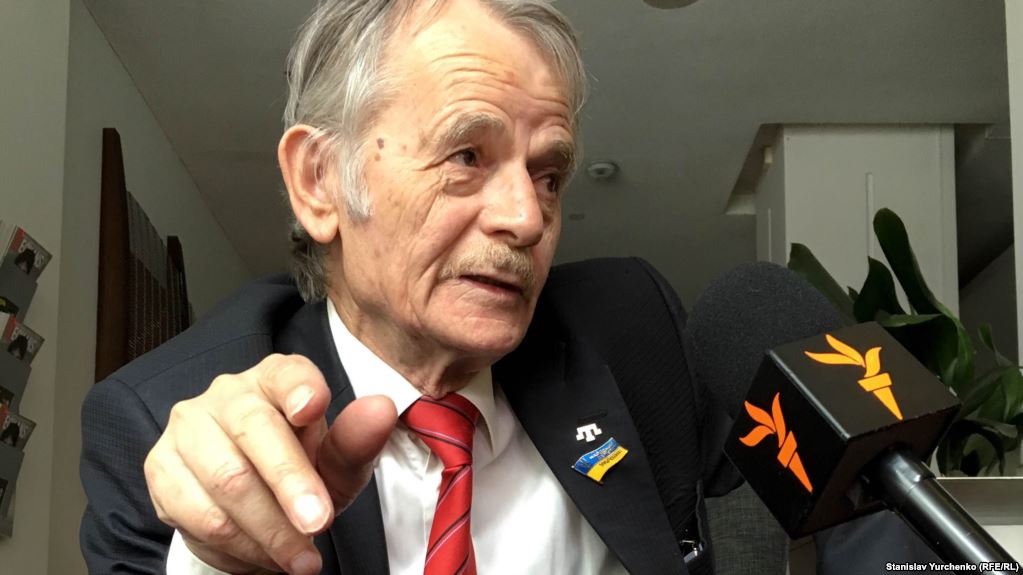Did you ever think of what basic reason drives some people in Russia-occupied Crimea to support Putin? No, it’s not the imaginary “discrimination of Russian language” as the Kremlin propaganda tirelessly broadcasts everywhere, or some “historical fairness” claimed by Putin. The answer is rather simple. They support it for the imperialist ideology at its core.
They like the Russian Empire, they like the imperialist policies of the USSR, and they like the Putin regime, because its ideology is imperialist too. For example, just a few days ago, during Russia’s “Borderguards Day,” a new monument was unveiled by the local administration of the Russian occupation force, a monument to glorify the Soviet Union’s Borderguards Troops, a division of the KGB machine responsible for keeping the population of the Soviet Union from escaping that “prison of the peoples.”
What people in their right mind would support a monument to a bloodied repression tool of a past totalitarian government? The answer is obvious – the people who approve of its deeds, the people who want that dead state to come back to life. USSR restorationism is appealing to them because of the Russian imperialist ideology that underlies it. They worship Stalin, they are okay with the crimes of his regime and, just like Putin, they think Stalin was an “effective manager who built a great country.” And by “great” they mean a country that generates fear, not necessarily respect. Fear is what animates them, what they are after. They are afraid of and hate the Crimean Tatars and Ukrainians. Why? Because they know of the genocidal deportation of the Crimean Tatars and the Holodomor imposed on Ukrainians. Crimes against humanity is the foundation of the Soviet Union. There was no segment of Soviet life that was unaffected by those crimes. You were either a victim or a perpetrator. What if you did not feel particularly guilty for being a part of the Soviet repression machine? That machine housed you, fed you, took every care of you and the only thing it asked from you in exchange was to repress, control, supervise other people. It was a comfortable life, if you did not have conscience. Now all these people do not want to feel responsible for the Soviet crimes, so they deny them, but their sweetest dream is going back to the times of the USSR, with their comfortable but morally despicable lives. USSR restorationists are a minority in Crimea, but they are the loudest minority, because they are the only ones who are allowed to freely speak in annexed Crimea without the threat of repressions. The rest of population is silenced or in Russian prisons.
After the Crimean Anschluss, the USSR restorationists finally feel at home. They feel like the USSR is back. Their attendance at the polls of the so-called “referendum” in 2014 provided a media cover for Putin’s Anschluss, while the Russian troops and mercenaries trained their deadly weapons on all critical points of government and active civil society in Crimea. Their open and covert denunciations of their neighbors, coworkers or just passers-by for doing or saying anything that contradicts the official Putin dogma to the powerful FSB enforcement apparatus in the peninsula enabled the current environment of total fear and distrust. They do try their best to keep the USSR from disappearing completely, they even try to recruit their children and grandchildren into their cult, but they forget one obvious thing. The past cannot be restored and delaying the future only makes the time snap back in place with more speed and power, causing much stronger pain to the ones who are fighting the change.
Related:
- Putin regime has long had an ideology — Great Power Imperialism — Pavlova says
- Moscow’s pursuit of imperial greatness may again end with disintegration of Russia, Rubtsov says
- Crimean Tatars no longer alone in remembering Stalin’s crimes against their nation
- Deportation, autonomy, and occupation in the story of one Crimean Tatar
- Open letter to the Prosecutor of occupied Crimea
- Occupied Crimea is Moscow’s test laboratory for repressions
- Crimea’s economy. When Russia’s words and figures don’t meet
- ‘Jamala glorified Ukraine and Crimea’ — Crimeans on Jamala’s Eurovision win
- Life in annexed Crimea: Protesting Russia’s brutal occupation
- A photo from the occupied Sevastopol: The Bell of Chersonesos
- Chronology of the annexation of Crimea




